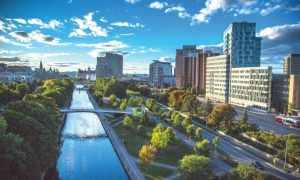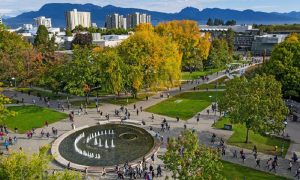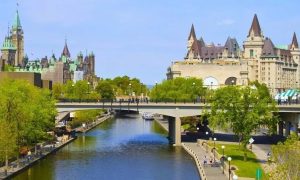With its open and tolerant culture, beautiful natural environment and good social welfare system, Canada attracts people from all over the world.immigrants. For first-time visitors toImmigration to CanadaIn this article, we will introduce some practical guidelines to help you better adapt to the local lifestyle and culture. In this article, we will introduce you to some practical adaptation guides, including cultural habits, social skills, living arrangements and other aspects, to help you better integrate into theImmigration to CanadaLife.
I. Understanding and respecting Canadian culture
1. Multiculturalism and inclusiveness
Canada is known as a "melting pot of cultures" with diverse ethnic and cultural backgrounds. Canadians place a high value on inclusiveness and respect for people regardless of religion, race, gender or background. When immigrants first arrive in Canada, it is important to respect other people's cultures and show an open mind. For example, they can take the initiative to participate in multicultural festivals organized by the community and learn about different cultures' food, clothing and traditions to enrich their knowledge of multiculturalism.
2. treat people politely
Canadians are known for their friendliness and politeness. In everyday life, "please", "thank you" and "sorry" are common polite words that show respect and modesty. Therefore, paying attention to the use of these polite words when communicating with others can not only show good cultivation, but also get along with the local people more harmoniously. In addition, greeting people and keeping a smile are also friendly signals in daily communication.
3. sense of time
Canadians take time very seriously, especially in the workplace and in public, and punctuality is considered basic etiquette. In Canada, being late is often considered disrespectful of other people's time, so it is advisable torecent immigrantsRemain punctual on all occasions. If there is an unavoidable lateness, it is best to show respect and courtesy by informing the other party in advance.
II. Integration into local social circles
1. Active participation in the community
In Canada, community life is very rich, and community events such as holiday parties, charitable activities, and outdoor fitness classes provide newcomers with a good opportunity to integrate into the local social circle. Many communities also have special events for newcomers, such as language classes and cultural exchanges, where you can quickly make friends and enhance your sense of belonging.
2. Social Media and Web Resources
Canadian social media platforms (e.g., Facebook, LinkedIn, Meetup) provide a wealth of information about events and gatherings. You can use these platforms to find local interest groups, professional communities, or event gatherings to meet like-minded people. In addition, many immigrant communities are also active on online platforms, sharing insights on life and work, and are a good channel to get help and advice.
3. Building a Language Foundation
Language is an important tool for integration into local life. English and French are the two official languages of Canada, and the need for languages varies slightly from province to province. For example, in Quebec, French is predominant, while English is more prevalent in other regions. Newcomers can take advantage of free language programs offered by the government or community to improve their language skills, which not only helps with work and life, but also allows one to communicate more confidently with locals.
III. Adapting to the Canadian way of life
1. Understanding the public transportation system
Canada has a relatively good public transportation system, especially in large cities like Toronto, Vancouver and Montreal. Understanding how buses, subways and trains operate and being familiar with the use of transit cards (e.g. Presto card, Compass card, etc.) can help you save time and money when traveling. For those who live outside the city limits, it is recommended to learn about the mobility tools available in your neighborhood, such as carpooling apps, cycling services, etc.

2. Familiar with shopping and dining habits
Large supermarkets and malls such as Walmart, Costco and Sobeys are great for everyday shopping, while there are also many small local stores selling fresh organic vegetables and local foods. For dining, Canada has a diverse food culture, ranging from Chinese and Indian to American fast food. When ordering food, you need to pay attention to taxes and tips, usually restaurants need to pay about 15%-20% tips after consumption, which is one of the local cultural habits.
3. Adaptation to climate change
Canada's climate varies significantly, from the mild climate of Vancouver to the cold winters of Calgary. For newcomers experiencing Canadian winters for the first time, it's important to have plenty of warm gear. In particular, down jackets, waterproof boots and gloves can help you get through the cold winter months in comfort. In the summer, you can enjoy Canada's natural beauty and participate in outdoor activities such as camping, hiking and skiing to fully experience Canada's natural charm.
IV. Access to career development opportunities
1. Expanding Professional Social Networks
Canada's work culture promotes social networking to find job opportunities, and many positions are recruited through inbound marketing and referrals. You can build your network through LinkedIn and local professional events (e.g. Job Fairs, Networking Events) by meeting professionals in your industry. The Canadian workplace emphasizes teamwork, so communicating positively and demonstrating your abilities will help you gain more opportunities in the workplace.

2. Knowledge of local occupational standards and certifications
In some professional fields such as engineering, accounting, and law, Canada has strict certification requirements for practicing. New immigrants looking for job opportunities in these fields may need to take exams or additional studies to obtain certification. For example, doctors, nurses, teachers and other professions require appropriate certificates. It is recommended that you understand the certification requirements in advance and prepare for them as soon as possible.
3. Making good use of government employment services
The Government of Canada and provincial and municipal immigration services provide a variety of employment support services such as vocational training, career counseling, and guidance on interviewing skills. This can be done throughImmigration to CanadaThe information is available on the official website of the Bureau or at provincial immigration service centers. Utilizing more of these resources can effectively enhance your employment competitiveness and quickly adapt to the Canadian workplace.
V. Maintaining physical and mental health
Canada's health care system has universal health insurance, but health care policies vary from province to province. Newcomers to Canada need to apply for health insurance as early as possible to ensure that their medical needs are covered in a timely manner. Physical activity can be used to maintain physical health. Canadian community centers often provide fitness classes, swimming pools, basketball courts and other facilities at low cost. In addition, Canada attaches great importance to mental health, and if you are experiencing psychological distress, you can turn to professional psychological counseling services.
summarize
adaptiveImmigration to CanadaLife will take some time, but by keeping an open mind, actively participating in local activities and respecting multiculturalism, you will gradually integrate into Canadian society. In the process of gradually understanding and integrating into Canadian culture, you will find that this is a warm and tolerant country. We hope that this guide will help you have a smoother journey in your life as a Canadian immigrant and start a wonderful new life for you!






